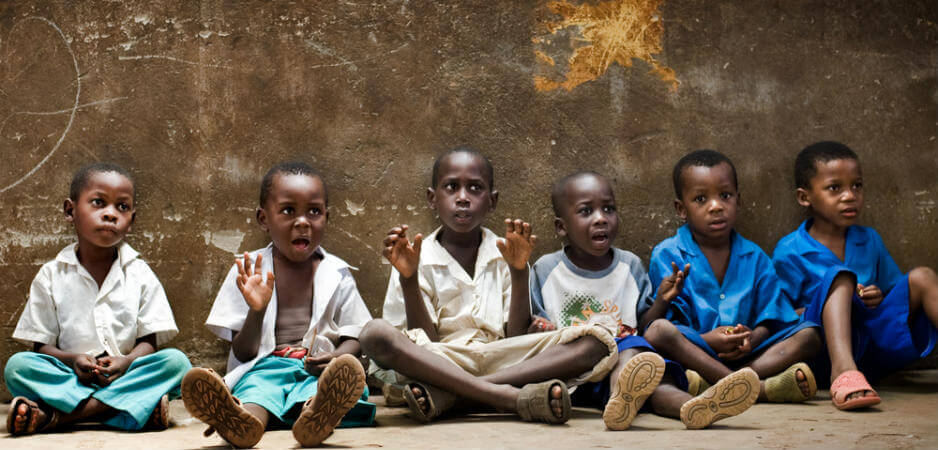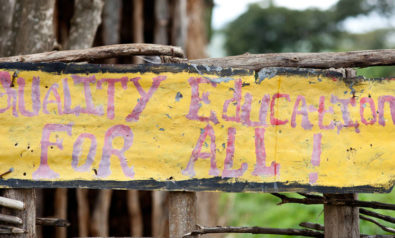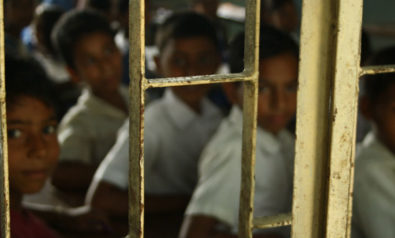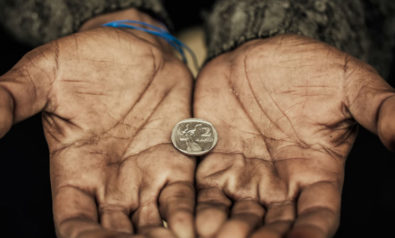There are people in the world who still struggle for their most basic right: the right to live.
If there’s one thing that graduate students love, it’s gossiping about their professors. At one point, I used the word “old” to describe a 50-year-old professor.
In my opinion, I was stating the obvious. For my colleagues, I didn’t make any sense. Their argument was simple: A 50-year-old man is not old. He has a whole life ahead of him.
As I tried to justify my point, I realized that we came from two different worlds.
I am from Egypt, a lower-middle income country from the Global South. Instead, they were all citizens of the developed West, or the Global North. While I lost seven of my family members before they reached 60, their grandparents were approaching their 90s. I always thought of retirement as the end of the journey, but they perceived it as a stop or a turning point along the way.
Since we came from two different worlds, our conception of time was poles apart.
This disagreement on our understanding of what a “long” and “short” life meant was nothing but a simple reflection of the global variations in average life expectancy. The estimations of average life expectancy indicate striking discrepancies between different parts of the world.
Average Life Expectancy
The difference in life expectancy between Monaco, the longest, and Chad, the shortest, is about 40 years. This means that during one lifetime of a Monaco citizen, two Chadians were born and died. More generally, while citizens of countries in the top 10%, with respect to life expectancy, can live an average of 83 years, their peers in the bottom 10% have an average life of 54 years. Thus, those at the top live for almost one and half times more than their peers at the bottom.
These gaps are not only present between the wealthy countries of Europe or North America and the poorer developing countries in Asia or Africa. Ironically, being born on the wrong side of a geographical border could mean much lower chances of living longer.
For example, the difference of the average life expectancy between Libya and Niger is more than 20 years, in favor of the first. In Asia, the life expectancy in Hong Kong is higher than mainland China by eight years. Thus, the chances of survival of two families living few miles apart, but separated by an international border, could be drastically divergent in many parts of the world.
Needless to say, the shorter lives of citizens in “unlucky” nations come with a lower quality of life as well. Countries with shorter life expectancies are also poorer, less educated and less politically stable. They’re torn apart by internal violent conflicts and struggle under malfunctioning democracies or brutal dictatorships. Although there might be some exceptions, the larger trend suggests that quality and quantity of life are related.
“In the end, it’s not the years in your life that counts. It’s the life in your years,” said Abraham Lincoln.
However, for many citizens of the world, there are not enough years in their lives to count, and there is not much life in their years to enjoy. Thus, as humanity continues its journey, we have to always remember that there are peoples of the world who still struggle for their most basic right: the right to live.
The views expressed in this article are the author’s own and do not necessarily reflect Fair Observer’s editorial policy.
Photo Credit: Juliya Shangarey / Shutterstock.com
 We bring you perspectives from around the world. Help us to inform and educate. Your donation is tax-deductible. Join over 400 people to become a donor or you could choose to be a sponsor.
We bring you perspectives from around the world. Help us to inform and educate. Your donation is tax-deductible. Join over 400 people to become a donor or you could choose to be a sponsor.
Support Fair Observer
We rely on your support for our independence, diversity and quality.
For more than 10 years, Fair Observer has been free, fair and independent. No billionaire owns us, no advertisers control us. We are a reader-supported nonprofit. Unlike many other publications, we keep our content free for readers regardless of where they live or whether they can afford to pay. We have no paywalls and no ads.
In the post-truth era of fake news, echo chambers and filter bubbles, we publish a plurality of perspectives from around the world. Anyone can publish with us, but everyone goes through a rigorous editorial process. So, you get fact-checked, well-reasoned content instead of noise.
We publish 2,500+ voices from 90+ countries. We also conduct education and training programs
on subjects ranging from digital media and journalism to writing and critical thinking. This
doesn’t come cheap. Servers, editors, trainers and web developers cost
money.
Please consider supporting us on a regular basis as a recurring donor or a
sustaining member.
Will you support FO’s journalism?
We rely on your support for our independence, diversity and quality.











